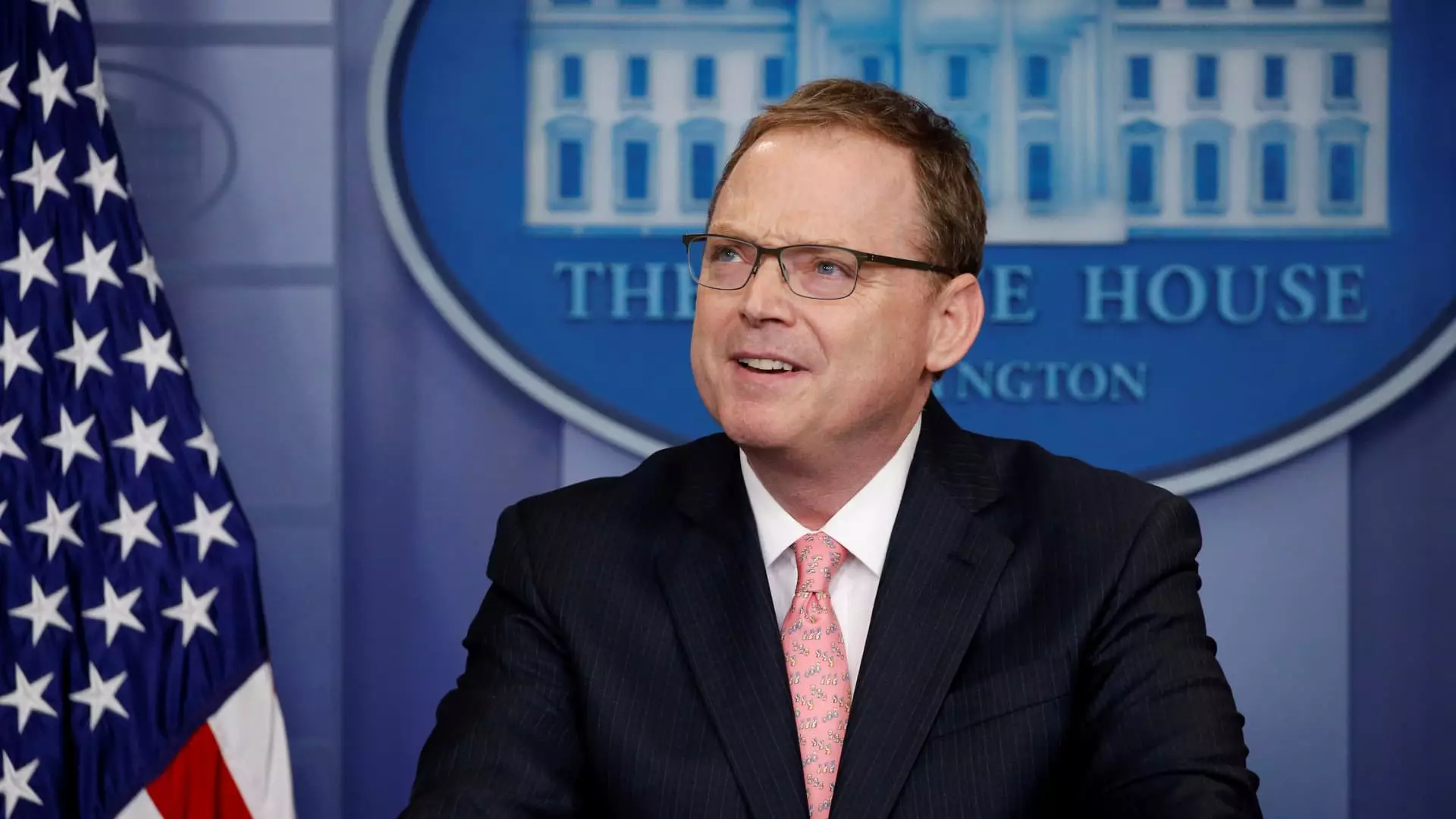As President-elect Donald Trump prepares for his reign, the selection of Kevin Hassett to head the National Economic Council (NEC) marks a crucial development in shaping his administration’s economic strategies. This appointment signals an intent to centralize discussions around pivotal economic policies such as trade, taxation, and deregulation—areas where Hassett has substantial experience. Notably, the selection of Hassett not only rounds out the economic team but accentuates Trump’s commitment to a staunchly conservative fiscal agenda.
Hassett’s experience positions him uniquely within the administration, adding depth through his previous role as chairman of the Council of Economic Advisers during Trump’s first tenure. His advocacy for corporate tax cuts and support for punitive tariffs underscores a continuity in economic philosophy that Trump appears eager to re-emphasize.
Central to the administration’s focus is the looming question of trade, particularly in relation to China. Trump has reiterated plans to elevate tariffs on all Chinese imports by an additional 10%, while proposing a sweeping 25% tariff on goods from both Canada and Mexico. These moves reflect a departure from conventional free trade practices and could significantly reshape the economic landscape in North America. Trump has justified these tariffs by citing concerns related to illegal immigration and the distribution of illicit drugs, framing these actions as necessary for national security despite the broader economic implications.
The appointment of Hassett, who has collaborated with various key figures in Trump’s circle, including Jared Kushner, adds another layer of strategic alignment as they seek to redefine America’s economic posture globally. The potential end of North American trade agreements raises red flags not only for businesses but also for consumers and the economy at large.
Broader Implications for Economic Policy
Hassett’s nomination is part of a wider strategy that entails various initiatives, including potential changes to immigration policies and sanctions against countries engaging in oil trade with Iran. By integrating Hassett’s fiscal expertise and Trump’s aggressive trade tactics, the administration is poised to embark on a path that many will view as unorthodox and confrontational. This realignment could trigger re-evaluations of trade partnerships, potentially alienating allies while emboldening adversaries.
Trump’s economic philosophy clearly favors a protectionist approach, significantly diverging from the often pragmatically libertarian leanings seen in prior administrations. His action-driven leadership style appears unwavering, emphasizing immediate decision-making over the traditional deliberative processes often associated with economic governance.
As the inauguration date draws closer, the formation of Trump’s economic team will be crucial. The recent indication of nominating Scott Bessent as Treasury Secretary hints at a consistent effort to install individuals with a robust market background within key economic roles. This strategic alignment suggests a push toward a more aggressive economic agenda that may prioritize national interests, even if it comes at the expense of established free trade norms.
Trump’s appointment of Kevin Hassett to lead the NEC is not merely about filling a position; it reflects an intention to enact a distinctive economic vision that prioritizes American sovereignty and protectionism. As Hassett steps into this role, the upcoming months will be pivotal in shaping the future economic landscape of the United States, with significant consequences both domestically and internationally.

